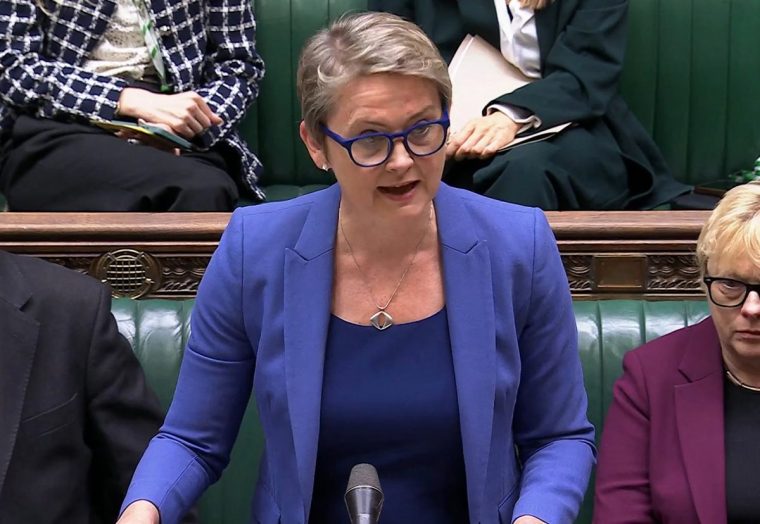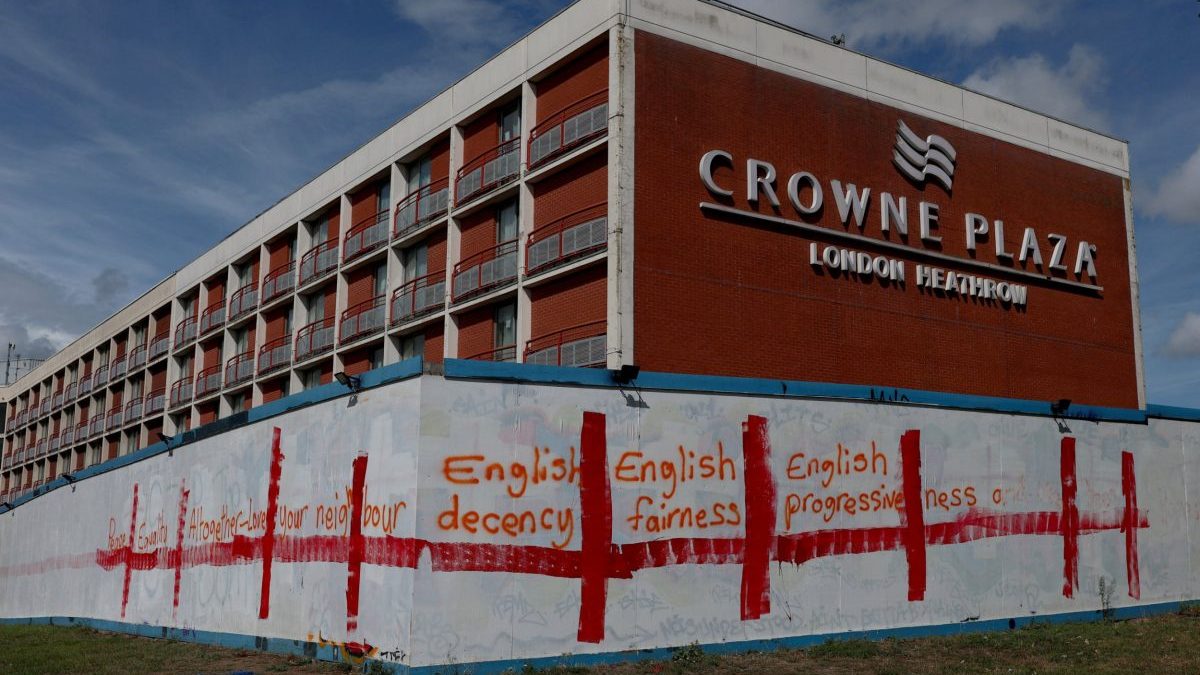Home Secretary introduces tougher new rules in wake of summer of discontent over immigration
Asylum seekers face being forced to wait for at least two years before they are allowed to apply for family members to join them in the UK, under tougher new plans announced by the Home Secretary.
It comes as Yvette Cooper said she would be pausing all new applications for family reunion from those granted asylum in the UK until the new stricter rules are brought in by the spring.
The strengthening of the family reunion rules comes as ministers sought to seize control of the narrative around migration, after a summer that was dominated by the issue and saw protests spring up around the country.
Cooper said the Government would tighten the rules around bringing family members into the UK after receiving asylum, after the average time before an application was made went from 18 months six years ago to just a month currently.
 Home Secretary Yvette Cooper delivering a speech on Borders and Asylum in the House of Commons (Photo: PRU / AFP)
Home Secretary Yvette Cooper delivering a speech on Borders and Asylum in the House of Commons (Photo: PRU / AFP)
The Home Secretary pointed to countries such as Denmark and Switzerland that prevent refugees from making an application to bring family members over for at least two years.
A dedicated system for bringing unaccompanied children to the UK will be set up by the spring, she said.
Introducing such changes would ease pressure on local authorities, Cooper told MPs, who said that up to a quarter of their family homelessness applications are linked to the refugee family reunion system.
She said the suspension of the current rules will also help address the risk of criminal gangs using the family reunion system as a “pull factor” to make the dangerous journey across the Channel.
“Reforms are needed,” Cooper said in a statement to MPs. “So, with our asylum policy statement later this year, we will set out a new system for family migration, including looking at contribution requirements, longer periods before newly granted refugees can apply, and dedicated controlled arrangements for unaccompanied children and for those fleeing persecution who have family in the UK.”
In a further attempt to demonstrate that the Government is getting a grip on the small boats crisis, the Home Office will review the application of Article 8, which applies to family life, and Article 3, which protects against torture, of the European Convention of Human Rights, due to concerns about how it is being interpreted in the courts.
Officials refused to comment on how the Government might interpret the law, ensuring that Parliament, rather than judges, decides how the legislation is determined.
The Government has come under increasing pressure to suspend, or even leave entirely, the ECHR in recent weeks, including from former Labour home secretary Jack Straw.
But both Cooper and No 10 rejected the idea, insisting that such a move would make it “harder, not easier” to strike returns deals with other governments, or to establish processing hubs in other countries.
Several Labour backbenchers appeared sceptical that the Government’s pledge to take a tougher stance on immigration would make a difference, however.
One Red Wall Labour MP told The i Paper: “I doubt this could really shift the dial in terms of stopping the boats.
“The Refugee Convention is just as relevant, if not more, than leaving the ECHR. We need to remove every legal obstacle to stopping the boats altogether. We have a majority of 170 – we can do things.”
The comments were echoed by another backbencher, who said: “On ECHR, in or out… we need the rule of law, not the rule of lawyers. Restore the primacy of the elected government to take decisive action.”
The Home Secretary also drew criticism from Labour MPs opposed to the stiffer rules, as well as from refugee and human rights groups, who warned that withdrawing refugee family reunion rules immediately would “severely harm refugees”.
Labour MP Kim Johnson said in the chamber: “Instead of scapegoating refugees and asylum seekers, maybe the Home Secretary needs to be thinking about more humane policies, including safe routes, employment, and right to remain.”
Enver Solomon, chief executive of the Refugee Council, said that until now, family reunion has been one of the only safe and legal routes available for refugees and overwhelmingly supports women and children who make up the majority of visas granted.
“Far from stopping people taking dangerous journeys to cross the Channel, these changes will only push more desperate people into the arms of smugglers in an effort to reunite with loved ones,” he said.
Amnesty International’s Steve Valdez-Symonds added: “The Home Secretary may say she is standing against hate, division and chaos, but yet again she has reacted to precisely these evils by doing more harm to refugees – the very people most targeted by them.”
